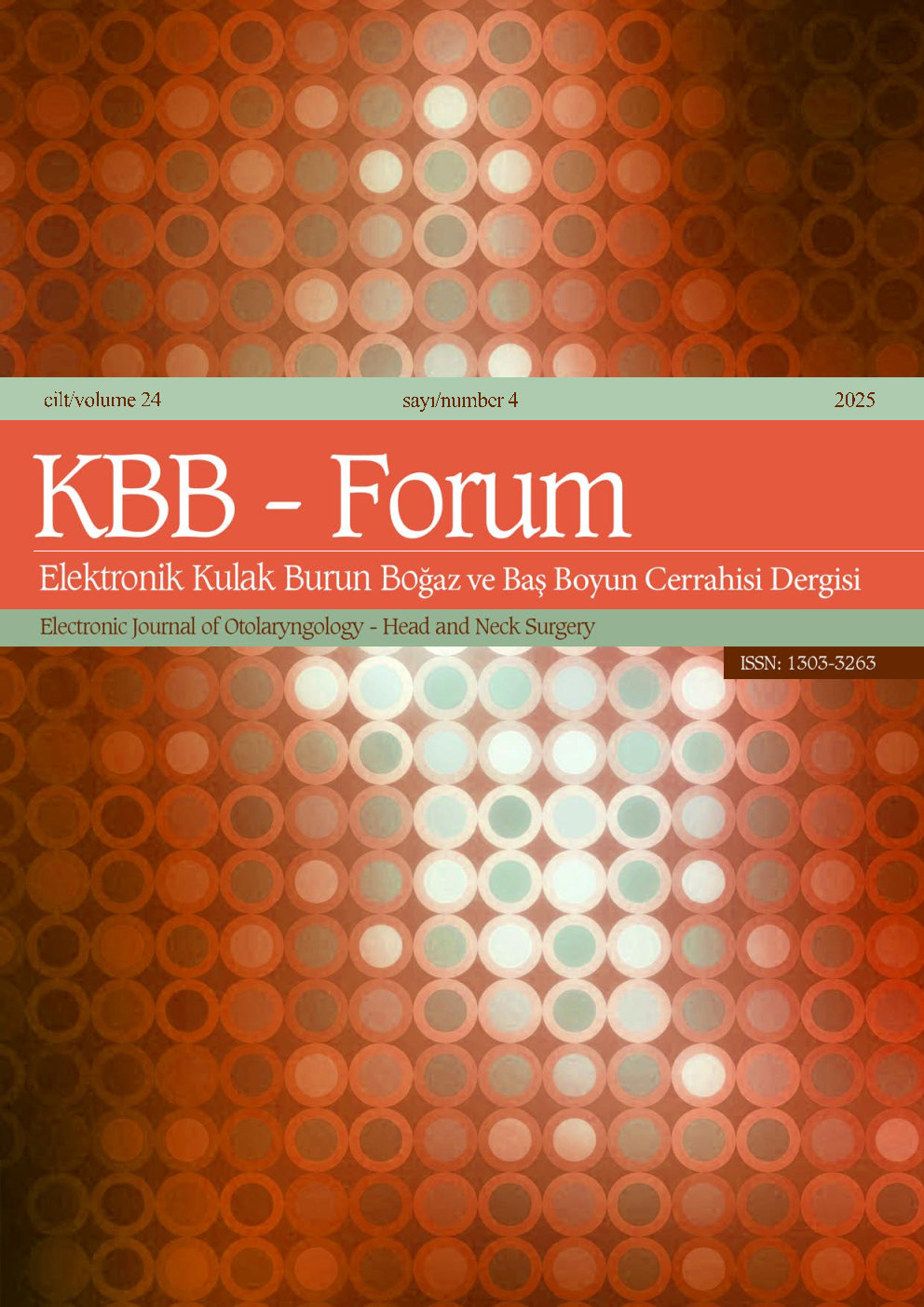SPEECH RECOGNITION AND QUALITY OF LIFE IN COCHLEAR IMPLANT USERS
1Anadolu Üniversitesi, Dil ve Konuşma Terapisi Bölümü, Eskişehir, Türkiye2Hacettepe Üniversitesi, Odyoloji Bölümü, Ankara, Türkiye Objective: To investigate the relationship between speech recognition performance and self-perceived quality of life in adult cochlear implant (CI) users.
Methods: Twenty-one postlingually deaf unilateral adult CI users were evaluated at least one year after implantation. Speech recognition test (SRT) was assessed in quiet under both auditory-only and auditory-visual (A+V) conditions. Self-perceived quality of life was measured using the Turkish version of the Nijmegen Cochlear Implant Questionnaire (NCIQ). The relationship between SRT scores and NCIQ total scores was analyzed using Spearman's correlation.
Results: A strong positive correlation was found between auditory-only speech recognition scores and total NCIQ scores (r = 0.73, p < 0.001), while a moderate correlation was observed for auditory-visual speech recognition and total NCIQ scores (r = 0.52, p = 0.016).
Conclusion: The findings suggest that speech recognition ability, particularly under auditory-only conditions, may be associated with the subjective quality of life of CI users. The NCIQ may serve as a potentially useful tool for evaluating patient-centered outcomes and could provide insights that contribute to the planning of individualized rehabilitation programs.
Keywords : Speech recognition; quality of life; cochlear Implant; nijmegen cochlear implant questionnaire



